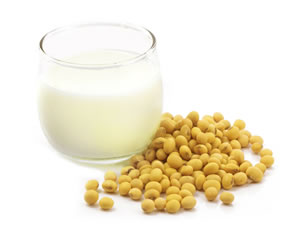The health benefits of Yogurt
A yogurt a day may not mean fewer doctor visits, but there are plenty of health reasons to make this dairy food a regular in your diet.
How it's made
Yogurt is made when cow's milk (or dairy-free soy milk) is combined with the live, active bacteria Lactobacillus bulgaricus and Streptococcus thermophilus. The mixture ferments and the microorganisms change the milk’s sugar (lactose) into lactic acid, which gives yogurt its tart, tangy flavor and firm, custard-like texture.
Nutrients
Just one cup of yogurt contains key nutrients like calcium, protein, potassium, iodine and vitamin B. One serving of yogurt provides around 400 mg of calcium - which is 300mg more than a large glass of milk. Yogurt also has as much potassium as a banana and as much protein as an egg or ounce of meat.
General Health Benefits
Yogurt may help to prevent osteoporosis, colon cancer, inflammatory bowel disease, high blood pressure and yeast infections, according to some research. Yogurt may also help to regulate your digestive system and boost your immune system. As an added bonus, people with mild lactose intolerance can usually enjoy yogurt.
Immune System
Scientists at the University of California studied the effect of live and heat-treated yoghurt consumption on younger and older adults. Both age groups, consuming 200g of the live yoghurt, showed a significant decrease in nasal allergies and also seemed to get fewer upper respiratory infections, such as colds and flu.
Benefits for females
Daily ingestion of "Bio" yoghurt containing Lactobacillus acidophilus may help reduce bouts of candidal vaginal thrush. In one study, involving 33 women who had recurring thrush, the average number of infections was two to three every six months, but this fell to between zero and one in the yoghurt-eating group.
It even helps with bad breath
Yoghurt reduced levels of hydrogen sulphide - a major cause of bad breath - in 80 percent of volunteers, according to Japanese research presented at a recent meeting of the International Association for Dental Research.
It's great for your disgestion
There's evidence that the friendly bacteria in yoghurt might ease the symptoms of diarrhoea, wind, constipation and bloating associated with Irritable Bowel Syndrome (IBS). The bacteria appear to benefit the gut's immune system, reducing inflammation
Cholesterol
Yoghurt may have a lowering effect on cholesterol and improve the balance of "good" HDL cholesterol to "bad" LDL types. Some bacteria also have the ability to break down bile acids - cholesterol containing digestive secretions. If the bile acids are broken down, the cholesterol cannot be re-absorbed, but is flushed out of the system.
Yogurt is linked to lower rates of cancer
Which bacterial strains work best for what conditions is uncertain, but "bio" yoghurts are probably better, as they nearly always contain Lactobacilli. Yoghurt has also been linked with a lower rate of colon cancer, and with a lower rate of male rectal cancer mortality.
Whats more . . . It can also help you lose weight
Research by Dr Michael Zemel and his team at the University of Tennessee found that obese volunteers lost 11 percent of their body weight over 24 weeks if they ate three portions of low-fat dairy products a day, whereas volunteers on the same calorie restriction who did not eat many dairy products lost only 6,4 percent.


